Related Research Articles

The White Rose was a non-violent, intellectual resistance group in Nazi Germany which was led by five students at the University of Munich: Willi Graf, Kurt Huber, Christoph Probst, Alexander Schmorell, Hans Scholl and Sophie Scholl. The group conducted an anonymous leaflet and graffiti campaign that called for active opposition to the Nazi regime. Their activities started in Munich on 27 June 1942; they ended with the arrest of the core group by the Gestapo on 18 February 1943. They, as well as other members and supporters of the group who carried on distributing the pamphlets, faced show trials by the Nazi People's Court ; many of them were sentenced to death or imprisonment.
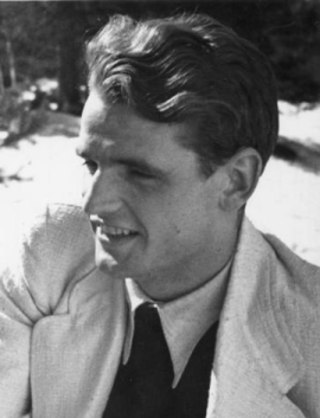
Hans Fritz Scholl was, along with Alexander Schmorell, one of the two founding members of the White Rose resistance movement in Nazi Germany. The principal author of the resistance movement's literature, he was found guilty of high treason for distributing anti-Nazi material and was executed by the Nazi regime in 1943 during World War II.
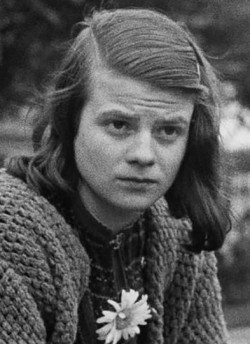
Sophia Magdalena Scholl was a German student and anti-Nazi political activist, active within the White Rose non-violent resistance group in Nazi Germany.

Die Weiße Rose is a 1982 CCC Film production about the White Rose resistance to the Nazis led by university students in Munich in 1942–1943 whose members were caught and executed in February 1943, shortly after the German capitulation at Stalingrad.
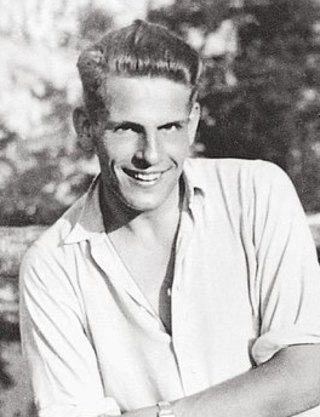
Christoph Ananda Probst was a German student of medicine and member of the White Rose resistance group.
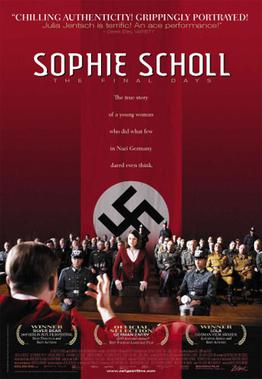
Sophie Scholl – The Final Days is a 2005 German historical drama film directed by Marc Rothemund and written by Fred Breinersdorfer. It is about the last days in the life of Sophie Scholl, a 21-year-old member of the anti-Nazi non-violent student resistance group the White Rose, part of the German Resistance movement. She was found guilty of high treason by the People’s Court and executed the same day, 22 February 1943.

Wilhelm Graf was a member of the White Rose resistance group in Nazi Germany. The Catholic Church in Germany included Graf in their list of martyrs of the 20th century. In 2017, his cause for beatification was opened.

Alexander Schmorell was a Russian-German student at Munich University who, with five others, formed a resistance group known as White Rose which was active against the Nazi German regime from June 1942 to February 1943. In 2012, he was glorified as a saint and passion bearer by the Russian Orthodox Church Outside Russia, and is venerated by Orthodox Christians throughout the world.
Lillian Groag is an Argentine-American playwright, theater director, and actress. Her plays include The Ladies of the Camellias, The Magic Fire, and The White Rose.

Inge Aicher-Scholl, born in present-day Crailsheim, Germany, was the daughter of Robert Scholl, mayor of Forchtenberg, and elder sister of Hans and Sophie Scholl, who studied at the University of Munich in 1942, and were core members of the White Rose student resistance movement in Nazi Germany. Inge Scholl wrote several books about the White Rose after the war.

Hans and Sophie Scholl, often referred to in German as die Geschwister Scholl, were a brother and sister who were members of the White Rose, a student group in Munich that was active in the non-violent resistance movement in Nazi Germany, especially in distributing flyers against the war and the dictatorship of Adolf Hitler. In post-war Germany, Hans and Sophie Scholl are recognized as symbols of German resistance against the totalitarian Nazi regime.
Traute Page is a German-American physician and anthroposophist, who was a member of the White Rose anti-Nazi group during World War II.

Lieselotte ″Lilo″ Fürst-Ramdohr was a member of the Munich branch of the student resistance group White Rose in Nazi Germany. She was born in Aschersleben.

Robert Mohr was an interrogation specialist of the Gestapo. He headed the special commission responsible for the search and arrest of the White Rose, part of the German Resistance to Nazism.

Franz Josef Müller was a member of the World War II-era White Rose resistance group in the Third Reich. In 1986, he founded the Weiße Rose Stiftung.
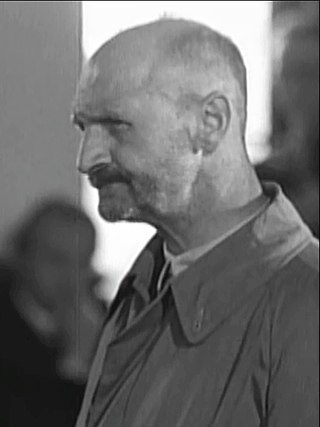
Jakob Schmid was a German janitor of Ludwig Maximilian University of Munich (LMU). On 18 February 1943, he turned in the siblings Hans Scholl and Sophie Scholl, members of the resistance group White Rose, for distributing pamphlets against Nazi Germany.
Else Gebel was a communist member of the German resistance to Nazism. She is remembered for having been the cellmate of Sophie Scholl in the Gestapo headquarters in the Wittelsbacher Palais of Munich before Scholl's execution.
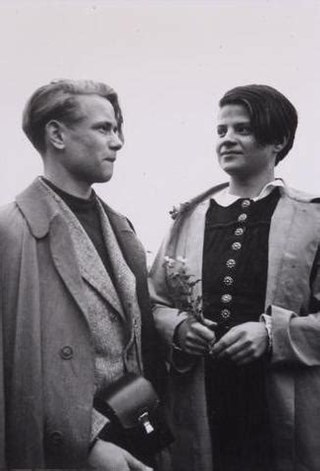
Werner Scholl was the younger brother of Hans and Sophie Scholl, who are best known for their resistance to Nazism as part of the White Rose.
Elisabeth Hartnagel was the sister of Hans and Sophie Scholl.
Hans Hirzel was a German resistance fighter. He was a member of the Ulm high school graduate group around which the White Rose resistance group formed.
References
- ↑ Garrett-Groag, Lillian (1993). The White Rose. Dramatist's Play Service. ISBN 0-8222-1352-4.
- 1 2 3 Churnin, Nancy (January 24, 1991). "'White Rose' Being Touted for Hollywood, Broadway". Los Angeles Times . Retrieved February 10, 2021.